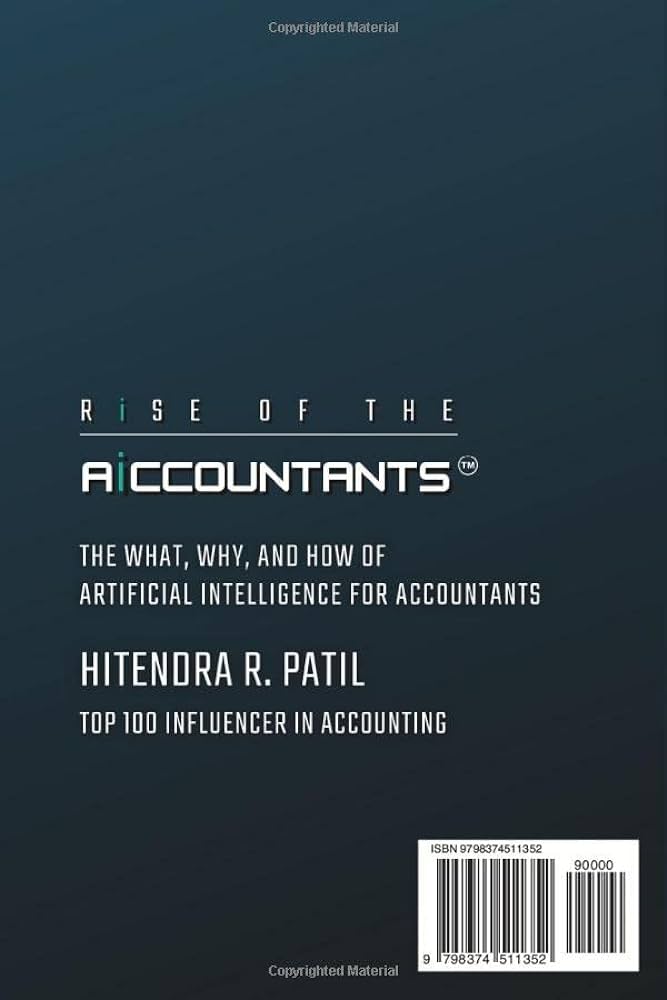9 Best AI Books: Essential Reads for Understanding Artificial Intelligence
Artificial Intelligence (AI) is transforming our world at a rapid pace, making it crucial to stay informed about its developments. Whether you’re a tech enthusiast, a professional in the field, or just curious about AI, diving into the right books can provide you with valuable insights and knowledge.
In this article, you’ll discover the 9 best AI books that cater to various levels of expertise. From foundational concepts to advanced theories, these books offer a comprehensive understanding of AI’s potential and its impact on our future. So, get ready to expand your mind and stay ahead in the ever-evolving world of AI.
1. “Artificial Intelligence: A Guide for Thinking Humans” by Melanie Mitchell
Dive into the intricate world of AI with Melanie Mitchell’s insightful book, aimed at demystifying artificial intelligence for the curious reader.
Insights into AI Complexity
Mitchell’s book offers an in-depth look at AI’s complex nature. She breaks down the technology into digestible pieces, ensuring you understand concepts like machine learning and neural networks. Her explanations aren’t overly technical, making it accessible for those new to AI yet informative for experienced readers. Mitchell draws on historical context and current developments to illustrate how AI is evolving, addressing common misconceptions along the way.
Key Themes and Takeaways
This book emphasizes the limitations and potential of AI. Mitchell highlights AI’s achievements while cautioning against overestimations. She explores themes such as the ethical implications of AI, the gap between human intelligence and machine capabilities, and the societal impact of AI advancements. Key takeaways include the need for responsible AI development and the importance of maintaining critical thinking as we integrate AI into everyday life.
2. “Superintelligence: Paths, Dangers, Strategies” by Nick Bostrom
Exploring the Future of AI
Dive into the intricate possibilities of AI evolution with Nick Bostrom’s “Superintelligence.” This book doesn’t just predict the future; it meticulously examines potential scenarios where AI surpasses human intelligence. Bostrom’s detailed analysis covers various paths AI might take, from gradual advancements to rapid breakthroughs.
Ethical Considerations
Learn about the ethical dilemmas surrounding superintelligent AI through Bostrom’s insightful discussions. He highlights crucial risks and proposes strategies to mitigate them. By examining these ethical concerns, you’ll gain a deeper understanding of why responsible AI development is paramount for our future.
3. “Life 3.0: Being Human in the Age of Artificial Intelligence” by Max Tegmark
This book by Max Tegmark is a thought-provoking read that delves into how AI could transform life as we know it.
Discussion on AI and Life’s Future
Tegmark explores the different ways AI could evolve and affect future generations. He introduces the concept of “Life 3.0,” where life, particularly intelligent life, can design its own software and hardware. Max describes various scenarios, ranging from optimistic utopias to dystopian nightmares, examining how advancements in AI might influence economies, warfare, and even everyday activities. His forward-thinking insights compel you to consider not just the technological advances but also the ethical challenges we face as AI progresses.
Implications for Human Identity
Max Tegmark invites you to ponder how AI might redefine what it means to be human. He discusses the potential for AI to not just augment human abilities but also challenge the very core of human identity. The book delves into the philosophical implications of having machines that can think, feel, and perhaps even have consciousness. The possibility of achieving “superintelligence” leads to questions about human obsolescence and the societal shifts that might accompany such transformations. Tegmark emphasizes the need for thoughtful consideration of these factors to ensure a future where humans coexist harmoniously with AI.
4. “AI Superpowers: China, Silicon Valley, and the New World Order” by Kai-Fu Lee
Kai-Fu Lee provides a powerful analysis of the AI race between the U.S. and China in his book. His insights into how AI is reshaping global economic and geopolitical landscapes are eye-opening.
Geopolitical Impact of AI
Explore how AI is not just a technological force but a geopolitical weapon. Lee argues that AI will redefine global power structures, influencing everything from economic dominance to national security. He discusses how nations are vying for AI superiority to gain leverage in international affairs. For example, China’s significant investments in AI research and infrastructure aim to outpace the U.S., revealing a global battleground where data, talent, and technology are the new arsenals.
Comparison Between U.S. and China AI Strategies
Understand the contrasting approaches of the U.S. and China in developing AI. The U.S. focuses on innovation driven by private enterprises like Google and NVIDIA. In contrast, China leverages a government-led strategy, pouring resources into AI startups and pushing for rapid implementation. Lee provides detailed comparisons, such as China’s “Made in China 2025” plan, aiming to become a world leader in AI. The U.S., however, continues to excel in groundbreaking research and entrepreneurial ventures, fostering an environment where innovation thrives.
5. “The Master Algorithm: How the Quest for the Ultimate Learning Machine Will Remake Our World” by Pedro Domingos
Pedro Domingos’ “The Master Algorithm” delves into the heart of machine learning and its transformative potential. This book is a must-read for anyone eager to explore the significant impact of algorithms on our daily lives.
Concepts of Machine Learning
Domingos outlines five main schools of thought in machine learning, each contributing unique methodologies. These paradigms—symbolists, connectionists, evolutionaries, Bayesians, and analogizers—demonstrate diverse approaches to teaching machines how to learn. For example, symbolists focus on logic-based learning, while connectionists use neural networks. Each school aims to create the ultimate learning algorithm, advancing fields like data science and predictive analytics.
Predictions for AI Development
Domingos anticipates considerable progress in AI, driven by the integration of these five schools into a single, master algorithm. He envisions a future where this convergence revolutionizes industries from healthcare to finance. According to Domingos, mastering this algorithm could lead to innovations such as personalized medicine and more accurate financial models, fundamentally changing how we interact with technology.
Overall, “The Master Algorithm” offers valuable insights into the principles and future possibilities of machine learning, making it essential for anyone interested in AI.
6. “How to Create a Mind: The Secret of Human Thought Revealed” by Ray Kurzweil
Ray Kurzweil’s “How to Create a Mind” provides an in-depth look at the intricate processes of the human brain and links them to artificial intelligence development. This book is a must-read for anyone interested in understanding the mechanics of thought and applying these concepts to AI.
Understanding Human Brain Processes
Kurzweil delves into the brain’s architecture by examining how it processes information. He breaks down the neocortex’s hierarchical structure and its role in pattern recognition. You’ll learn about the brain’s neural pathways and how they enable complex cognitive tasks. The book uses real-world analogies to make these concepts accessible, helping you grasp the fundamentals of human thought.
Applying These Concepts to AI
Kurzweil doesn’t just stop at explaining the brain; he connects these insights to AI’s evolution. He suggests that mimicking the brain’s pattern-recognition capacity can lead to more advanced AI systems. You’ll find discussions on how neural networks and machine learning algorithms can benefit from these biological insights. The book also forecasts future AI advancements, providing a roadmap for leveraging human brain processes in technology.
7. “Machine Learning Yearning” by Andrew Ng
Andrew Ng’s “Machine Learning Yearning” provides invaluable insights into the practical aspects of AI implementation. It’s a must-read for anyone looking to enhance their machine learning projects.
Techniques for AI Strategy
Ng offers techniques for developing a robust AI strategy. You’ll find advice on prioritizing the most impactful AI projects. He emphasizes identifying and exploiting the key components that will provide the greatest business value. Ng also discusses how to allocate resources effectively to maximize your team’s efficiency and output.
Practical Advice for Machine Learning Projects
Ng provides practical advice for tackling machine learning challenges. You’ll learn how to diagnose errors in your models and make necessary improvements. He offers tips on optimizing data collection and refining algorithms. Ng delves into the importance of iterative processes and continuous testing to achieve better results.
8. “Architects of Intelligence: The Truth About AI from the People Building It” by Martin Ford
Martin Ford’s book offers unique insights directly from the engineers, researchers, and innovators who drive AI advancements.
Interviews With Leading AI Experts
Discover conversations with some of the brightest minds in AI, including Geoffrey Hinton, Yann LeCun, and Demis Hassabis. Ford’s interviews reveal their perspectives on AI’s societal impact, ethical concerns, and future potential. These dialogues provide you with a deep understanding of the minds shaping the AI realm today.
Future Directions of AI Technology
Explore Ford’s examination of AI’s trajectory over the next few decades. The book discusses emerging trends, potential breakthroughs, and the challenges that lie ahead. Gain insights into how AI might evolve and what that means for industries, economies, and everyday life. Ford’s analysis helps you appreciate both the promises and the risks associated with AI’s growth.
9. “Deep Learning” by Ian Goodfellow, Yoshua Bengio, and Aaron Courville
Fundamental for Deep Learning Enthusiasts
“Deep Learning” serves as an essential resource if you’re diving into the complexities of neural networks. It covers foundational concepts like backpropagation, stochastic gradient descent, and convolutional neural networks in a way that builds your understanding systematically. The book provides concrete examples to illustrate each concept, making it easier for you to grasp intricate ideas.
Advanced Applications in AI
This book isn’t just for beginners. It delves into advanced topics that you can apply in real-world AI tasks. You’ll find detailed sections on sequence-to-sequence models, generative adversarial networks, and reinforcement learning. These sections are crafted to enhance your knowledge and prepare you to tackle more complex AI challenges. The authors include research-backed strategies and practical tips, equipping you with the tools to push the boundaries of what’s possible in AI.
Conclusion
Exploring the best AI books can significantly broaden your understanding of this transformative technology. From foundational concepts to advanced applications these books offer diverse insights and practical knowledge. Whether you’re a beginner or an experienced professional there’s something valuable for everyone. Dive into these readings to stay ahead in the ever-evolving field of AI and equip yourself with the tools to navigate its complexities confidently.






